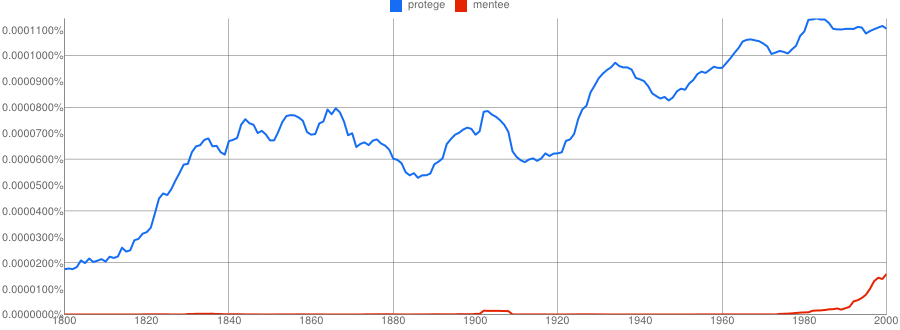I personally don't consider it "correct English".
Mentor is originated from the Greek word Méntōr, the name of the son
of Anchialus and Asopis.
He was placed by his friend, Odysseus, the king of Ithaca, together
with Eumaeus, to take charge of Odysseus' son Telemachus and Odysseus'
palace, when Odysseus left for the Trojan War.
The Trojan war lasted 10 years and it took Odysseus another 10years to
return home.
While Trojan had gone for pretty long, many people started to believe he's dead and
consider Odysseus's wife, Penelope, a widow.
So the 108 suitors of Penelope courted Penelope everyday.
In order to encourage Telemachus to stand up against the suitors,
Pallas Athena, the goddess of wisdom, took disguise of Mentor (so
she won't be recognized by the suiters), gave Telemachus advice and
told him to find out what happened to his father.
Because of Méntōr(and Athene who took disguise of Mentor)'s
relationship with Telemachus, Méntōr has been adopted in English as a
term meaning someone who imparts wisdom to and shares knowledge with a
less experienced colleague.
Therefore, personally I don't find the back-formation of turning mentor into mentee make much sense.
Unlike trainer, employer, abductor, examiner , the term mentor is not simply formed from a verb and therefore it is quite bizarre to create a new word from it by replacing the seeming suffix "or".
I would prefer to use the word apprentice or protégé/protégée instead.
Now back to the question:
Is this word really considered correct English?
It is up to your definition of correct English.
To me, "mentee" is definitely not correct English.

